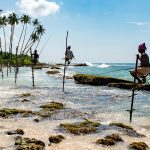These great travel experiences come naturally
Ian Stalker
Talk about being good natured…
The tourism industry continues to offer people opportunities to see some of Mother Nature’s handiwork,in spite of the coronavirus pandemic.
Here are some possibilities for those eager to take a walk on the wildlife side when travel resumes.
Onduli Ridge
Namibia
 Ultimate Safaris is on the verge of opening a new property that may leave guests a little star-stuck.
Ultimate Safaris is on the verge of opening a new property that may leave guests a little star-stuck.
The company will hold a soft opening of another Namibia property in March that will feature dramatic nighttime views of constellations and great daytime views of Namibia’s highest peak.
“The intimate 6-suite Damaraland camp is nestled among massive boulders at the base of two south-facing granite outcrops,” Ultimate Safaris says.
The company says Onduli Ridge will also provide sightings of some of Namibia’s intriguing wildlife, such as the desert-adapted elephant and rhino.
Ultimate Safaris says Onduli Ridge’s smallish size doesn’t mean guests will be lacking comfort.
“Special touches like rain showers, star beds, delicious cuisine and air-conditioned beds take the guest experience to the next level,” it continues.
Anantara Resorts
Thailand
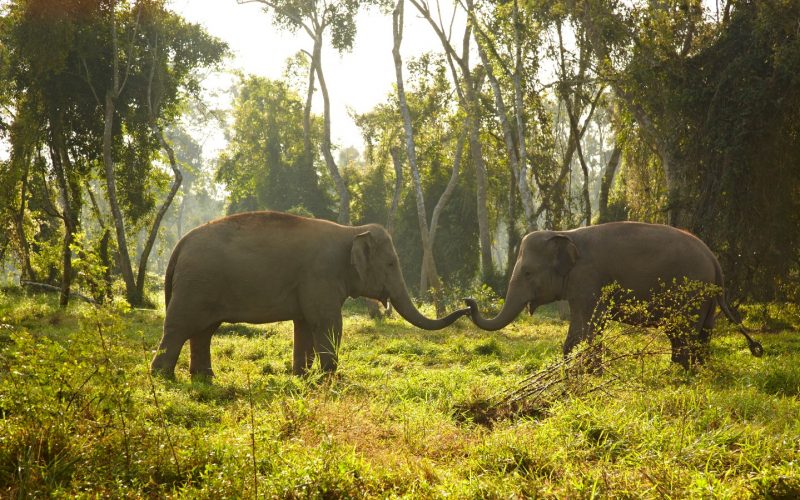 Count Anantara Resorts among those coming to the assistance of Thailand’s elephants.
Count Anantara Resorts among those coming to the assistance of Thailand’s elephants.
The company, which offers Thailand vacations, is working with pioneering elephant welfare charity, The Human Elephant Learning Programs Foundation (H-ELP), and the Golden Triangle Asian Elephant Foundation (GTAEF) to launch a global service that stars elephants in Zoom video calls live from their natural habitat in Northern Thailand’s ancient jungle.
Rates start from US$75 to bring elephants in on a Zoom video call for 10 minutes. For US$145, callers also get a two-minute introduction to their three-ton video call companions and a three-minute question and answer session conducted by one of the GTAEF’s elephant experts. All funds raised through people or organizations booking elephants to partake in their video conferencing will be shared by H-ELP and GTAEF to care for Asian elephants. The Zoom fundraising initiative follows the success of the GTAEF’s twice-daily livestreams of elephants enjoying their walks in the jungle and taking a mud bath in the Mekong River, that garnered more than 5 million views since its home base, Anantara Golden Triangle Elephant Camp & Resort in Northern Thailand, temporarily closed its doors in the wake of Covid-19 pandemic. The resort is known for its elephant camp that, along with the GTAEF, were set up in 2003 primarily to help street begging elephants and others that could not help themselves. Twenty-three elephants now live in the jungle environment of the resort along with their entire mahout (carer) families, who also receive 100% of the profits from a traditional silkworm business that the resort set up for them.
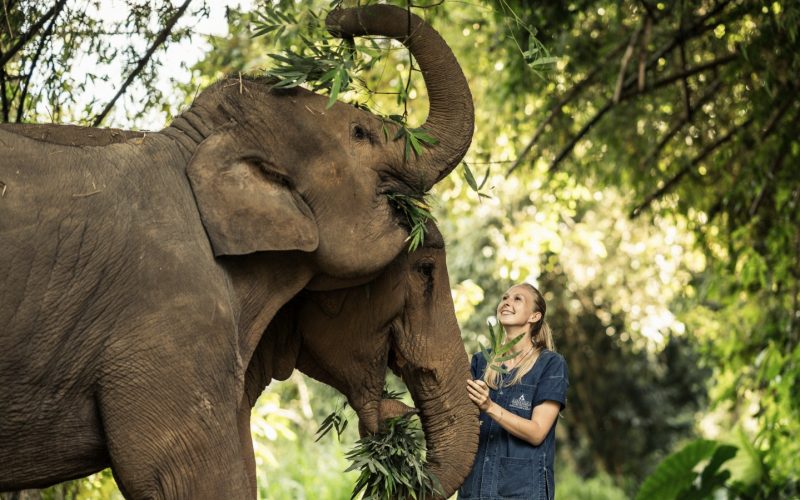
During the Zoom video call, participants can virtually participate in unique elephant experiences, including the resort’s Walking With Giants signature experience that provides an “optimum way of getting to know the elephants and develop a deeper emotional connection with them. Championing the natural joy of daily free-roaming time, accompanied by the mahouts and either an elephant veterinarian or biologist, the activity offers insights from scientific experts about how these intelligent creatures think and behave as well as their social interaction in their native habitat. The fun of either a river bath or mud playtime demonstrates just how cheeky these graceful animals can be,” Anantara says.. H-ELP is an Australian organization that aims to improve the welfare of working elephants in Asia through the systematic application of humane, evidence-based training initiatives, education and engagement with local communities and relevant stakeholders.
John Roberts, Anantara’s group director of sustainability & conservation, said that the almost total disappearance of tourism throughout Thailand due to Covid-19 continues to have a negative effect on the Kingdom’s 3,800 odd captive elephants. “Their carers still need to find an approximate US$ 20 per day just to feed their elephant,” he reports.
Riviera Nayarit
Mexico
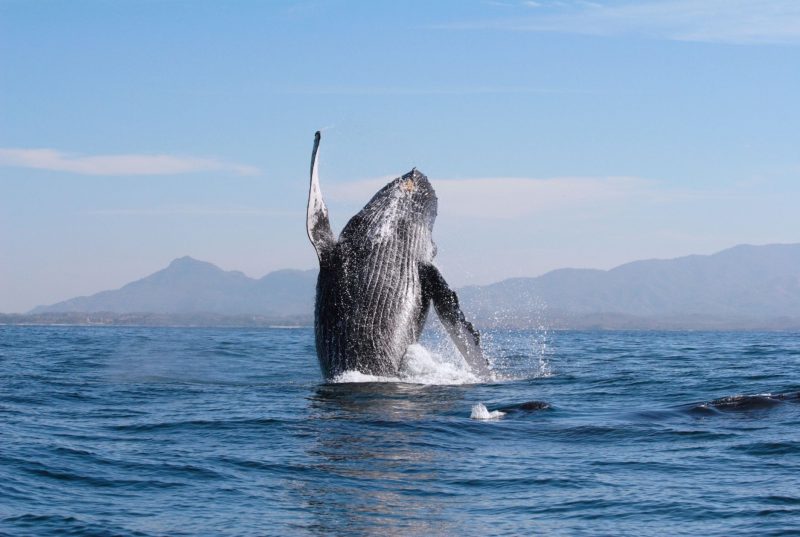
Don’t call any of those people Ishmael.
In fact, those who work in the Riviera Nayarit’s tourist trade have the best interests of visiting whales at heart and would likely be horrified by the behaviour of Ishmael, Captain Ahab and the other relentless pursuers of the great white whale in the classic novel Moby Dick.
Every year, hundreds of whales migrate to Banderas Bay, on the shores of Riviera Nayarit, to feed, mate and give birth. This whale-watching season runs into March and promises to be one of the best as the coronavirus pandemic has led to a dramatic reduction of the number of ships in Pacific waters. Scientists agree that whales have been thriving without human interference and are more likely to travel in bigger groups and be more social.
While the most common whale-watching sightings are humpback whales, Banderas Bay will offer plenty of opportunities to spot blue, sperm, California grey whales, orcas, and many species of dolphins. Tours that have a marine biologist or other scientist as a guide are available, with Punta Mita Adventures, for example, having whale watching photo safaris led by marine mammal experts who can provide insight and answer questions.
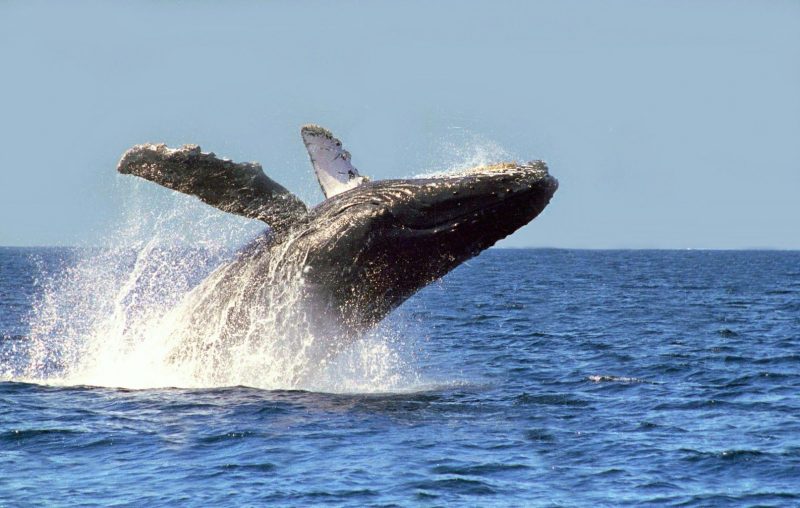 Riviera Nayarit’s whale-watching providers play an important role in conservation and awareness efforts. Their teams take part in yearly education programs with the local community, help monitor migration patterns and many companies donate part of their earnings to research and conservation efforts. ECOBAC is the main non-profit operating in Banderas Bay, working mainly on whale research and conservation.
Riviera Nayarit’s whale-watching providers play an important role in conservation and awareness efforts. Their teams take part in yearly education programs with the local community, help monitor migration patterns and many companies donate part of their earnings to research and conservation efforts. ECOBAC is the main non-profit operating in Banderas Bay, working mainly on whale research and conservation.
Meanwhile, authorities report that boats and life vests used on whale-watching tours are disinfected between groups, helping protect passengers against coronavirus.












